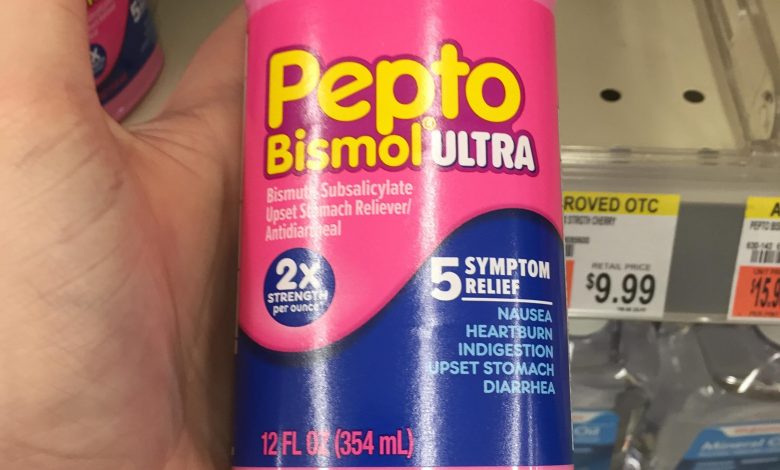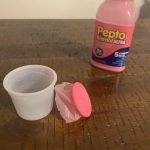Does Pepto Bismol Make You Poop?

Constipation occurs when a person has difficulty emptying the large bowel. Home remedies and lifestyle changes can often help resolve it, but sometimes, it may need medical attention. Constipation can happen for many reasons, such as when stool passes through the colon too slowly. The slower the food moves through the digestive tract, the more water the colon will absorb and the harder the feces will become. A person who poops fewer than 3 times per week may have constipation.
Sometimes, constipation results from a blockage in the large intestine. In this case, a person will need urgent medical attention. At other times, it may simply be due to a lack of fiber or water. Constipation is one of the most frequent gastrointestinal complaints in the United States. At least 2.5 million people see their doctor each year due to constipation.
People of all ages can have an occasional bout of constipation. There are also certain people and situations that are more likely to lead to becoming more consistently constipated (“chronic constipation”). These include:
• Older age. Older people tend to be less active, have a slower metabolism, and have less muscle contraction strength along their digestive tract than when they were younger.
• Being a woman, especially while you are pregnant and after childbirth. Changes in a woman’s hormones make them more prone to constipation. The baby inside the womb squishes the intestines, slowing down the passage of stool.
• Not eating enough high-fiber foods. High-fiber foods keep food moving through the digestive system.
• Taking certain medications.
• Having certain neurological (diseases of the brain and spinal cord) and digestive disorders.
What is Pepto-Bismol?
Pepto-Bismol is a brand of bismuth subsalicylate, a medication used for heartburn and acid reflux, indigestion, diarrhea, and feeling sick (nausea). It works by protecting your stomach and the lower part of your food pipe from stomach acid. It is also a mild antacid, which helps reduce excess stomach acid and eases any discomfort.
In some cases, and always under a doctor’s guidance, people may use Pepto Bismol and other drugs to help treat infections caused by the bacteria H. pylori and symptoms that arise from them. Sometimes, a doctor may recommend it to treat symptoms of chronic digestive disorders.
Some people also find the antibacterial effects of Pepto Bismol useful when traveling to unfamiliar areas where the local bacteria may infect their digestive system and cause traveler’s diarrhea.
No one should self-diagnose an underlying issue and use Pepto Bismol to treat it. Anyone whose symptoms get worse or last more than 2 days should contact a doctor for a full diagnosis.
Pepto-Bismol comes as tablets and a liquid that you drink. You can only buy it from pharmacies.
Can Pepto Bismol make you poop?
No, Pepto Bismol is not a laxative and does not make you poop. In fact, taking Pepto Bismol can cause severe constipation, especially in children and teenagers who have or are recovering from the flu or chickenpox. You can also pass dark-colored stools and develop a black tongue.
Pepto-Bismol should only be taken by adults and young people from the age of 16 years. Do not take this medicine if you are pregnant or breastfeeding.
Pepto-Bismol is not suitable for some people. To make sure this medicine is safe for you, tell your doctor or pharmacist if you have:
• had an allergic reaction to Pepto-Bismol, aspirin, or any other medicines in the past
• an allergy to amaranth or aspartame
• a problem with blood clotting
• diabetes
• gout
• a rare inherited illness called phenylketonuria – the chewable tablets contain aspartame
Pepto-Bismol liquid and tablets both contain a coloring called amaranth. Some people can have an allergic reaction to amaranth.
How should I take Pepto-Bismol?
Use exactly as directed on the label, or as prescribed by your doctor. Shake the oral suspension (liquid) before you measure a dose. Use the dosing syringe provided, or use a medicine dose-measuring device (not a kitchen spoon).
You must chew the chewable tablet before you swallow it. Drink plenty of liquids while you are taking Pepto-Bismol.
Anyone taking Pepto Bismol to treat occasional digestive symptoms should follow the instructions on the label.
The original liquid Pepto Bismol includes a 30 milliliter (ml) cup, which is one dose, delivering 525 milligrams (mg) of bismuth subsalicylate. The Pepto Bismol website recommends taking:
- One 30 ml dose every 30 minutes as needed for stomach upset, nausea, heartburn, and indigestion
- One 30 ml dose every 30 minutes or two doses every hour for diarrhea or traveler’s diarrhea
It also warns not to take more than eight doses in 24 hours.
When using the original chewable tablets, one dose is two tablets. The recommended dose is:
- Two tablets every 30 minutes or four tablets every hour for diarrhea
- Two tablets every 30 minutes for stomach upset, nausea, heartburn, and indigestion
Similarly, do not take more than eight doses (16 tablets) in 24 hours.
Pepto Bismol Extra Strength is a more concentrated liquid but delivers the same amount of active ingredient per recommended dose — 525 mg of bismuth subsalicylate in 15 ml of liquid.
For children under the age of 12, use children’s versions of similar medications or talk to a doctor before using Pepto Bismol.
Do not take more than 8 doses in one day (24 hours). Call your doctor if you still have diarrhea after 2 days of using Pepto-Bismol.
This medicine can affect the results of certain medical tests. Tell any doctor who treats you that you are using Pepto-Bismol.
Store at room temperature away from moisture and heat. Do not freeze.





